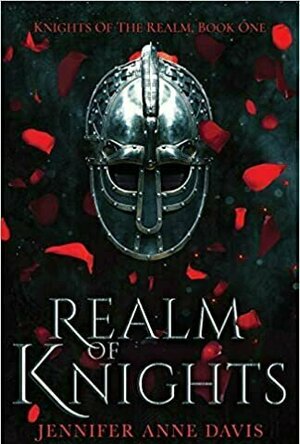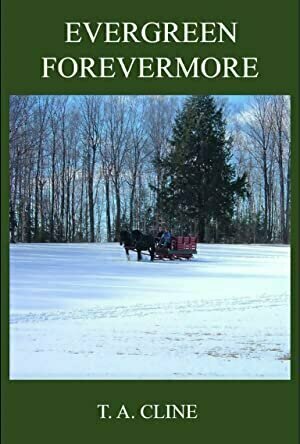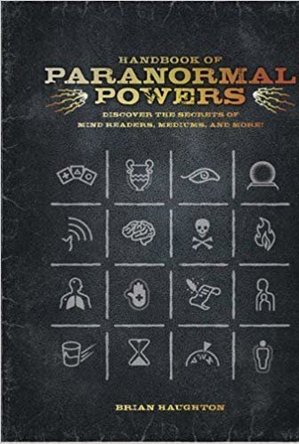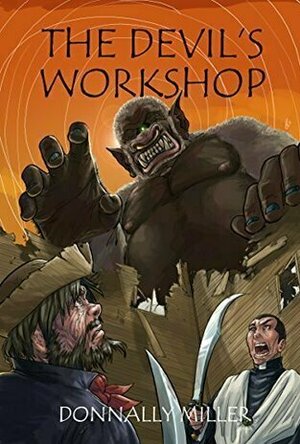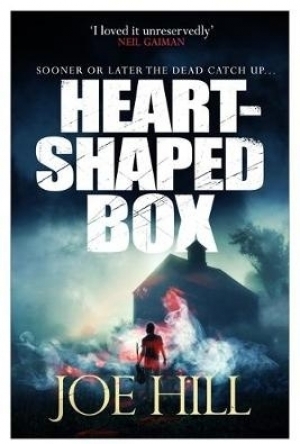Search
Ari Augustine (10 KP) rated Realm of Knights (Knights of the Realm, #1) in Books
May 4, 2020
In case you havent heard about this hidden gem, Realm of the Knights is the first book in a new series by Jennifer Anne Davis. Long story short: Since the day of her birth (and subsequent death of her mother) Reid Ellington has been forced to live as her fathers sole male heir. Shes had to walk like a boy, talk like a boy, and do all kinds of boyish things. Its the only way she can inherit her fathers estate.
But when the beans are spilled and by a prince with a taste for blackmail shes forced to accept his offer of silence in exchange for an act of treason. Shes sucked into a whole world of secrets, far more dangerous and deadly than the one shes fighting to keep. And it may cost her more than she realizes.
To be honest, Realm of the Knights isnt my usual cuppa. The last time I read anything close to a high or epic fantasy was during my Forgotten Realms phase, especially ones with courts or royal families.
But Realm of the Knights caught my eye first (admittedly) by its bold, beautiful cover and second, the major Arthurian-Mulan vibes I was getting. This was all I needed to abandon my High-Fantasy famine and dive right in.
And I dont regret it one bit.
You can hear more about my reflections at <a href="https://www.bookishvalhalla.com">Bookish Valhalla</a>
But when the beans are spilled and by a prince with a taste for blackmail shes forced to accept his offer of silence in exchange for an act of treason. Shes sucked into a whole world of secrets, far more dangerous and deadly than the one shes fighting to keep. And it may cost her more than she realizes.
To be honest, Realm of the Knights isnt my usual cuppa. The last time I read anything close to a high or epic fantasy was during my Forgotten Realms phase, especially ones with courts or royal families.
But Realm of the Knights caught my eye first (admittedly) by its bold, beautiful cover and second, the major Arthurian-Mulan vibes I was getting. This was all I needed to abandon my High-Fantasy famine and dive right in.
And I dont regret it one bit.
You can hear more about my reflections at <a href="https://www.bookishvalhalla.com">Bookish Valhalla</a>
Lindsay (1793 KP) rated Evergreen Forevermore in Books
Jun 16, 2024
Evergreen Forevermore is a captivating tale set in the picturesque hometown of Whitecap. It is a book brimming with mystery and intrigue. We are introduced to a young man named John Devore, who, driven by a deep sense of duty, becomes a paramedic to serve his community.
We are introduced to a judge who is a friend of John's. We meet a young woman named Katherine who needs to learn a few things about people. The story starts in a shelter in New York, where John volunteers and has met some friends along the way.
John and the Judge share a unique bond, a friendship that transcends their professional lives. The Judge, intrigued by John's tales of his hometown, expresses a desire to visit Whitecap. Will this wish be fulfilled? This book, with its rich tapestry of characters, holds the answer.
John sees a man working on the streets and wonders about him. His grandfather tells him his name is Fred Bates. John appears to start a conversation with Fred and introduces him. He also sees Fred Bates's interest in the new medic truck and wonders why. He finds a way to get Fred to work with him at the firehouse.
As the story goes on, there seems to be secrecy and mystery around every door. What are these mysteries, and will John be able to help? The story begins when the Judge has to sentence a woman he meets. Will a change of scenery and learning about others help the young woman? What about her father? There is more to the plot than just learning about expectations and how others feel. The young woman needs an attitude change or will be in much more trouble if she continues her path. Will her father understand that he needs to let his daughter learn the hard lessons and stand on her own to two feet?
Judge James Wilcox, a pivotal character, embarks on a journey with John to uncover long-awaited hidden secrets. Will his efforts lead to a long-overdue family reunion for Katherine and Fred? Will a sweet handyman, be haunted by the memory of his lost and beloved wife, find closure? Fred, a veteran, is finally recognized for his bravery. Will he be able to forgive himself for the past?
This book is heartwarming. I really enjoyed it. I love how this ends. The characters are my favorite. However, each main character's story is involved in the other's. It is more about a story about a town and town folk than just a personal story. TA Cline does a wonderfully good job on this. I recommend this book and these other two books as well. This one is a top favorite. I would like to know if this book can be beaten from the top of the list.
This book is a treasure trove for those who seek a rollercoaster of emotions. This book is a must-read if you are a fan of heartfelt stories, mysteries that keep you on the edge of your seat, and the complexities of family dynamics. It skillfully weaves together a diverse cast of characters, including a veteran, each adding a unique flavor to the narrative.
We are introduced to a judge who is a friend of John's. We meet a young woman named Katherine who needs to learn a few things about people. The story starts in a shelter in New York, where John volunteers and has met some friends along the way.
John and the Judge share a unique bond, a friendship that transcends their professional lives. The Judge, intrigued by John's tales of his hometown, expresses a desire to visit Whitecap. Will this wish be fulfilled? This book, with its rich tapestry of characters, holds the answer.
John sees a man working on the streets and wonders about him. His grandfather tells him his name is Fred Bates. John appears to start a conversation with Fred and introduces him. He also sees Fred Bates's interest in the new medic truck and wonders why. He finds a way to get Fred to work with him at the firehouse.
As the story goes on, there seems to be secrecy and mystery around every door. What are these mysteries, and will John be able to help? The story begins when the Judge has to sentence a woman he meets. Will a change of scenery and learning about others help the young woman? What about her father? There is more to the plot than just learning about expectations and how others feel. The young woman needs an attitude change or will be in much more trouble if she continues her path. Will her father understand that he needs to let his daughter learn the hard lessons and stand on her own to two feet?
Judge James Wilcox, a pivotal character, embarks on a journey with John to uncover long-awaited hidden secrets. Will his efforts lead to a long-overdue family reunion for Katherine and Fred? Will a sweet handyman, be haunted by the memory of his lost and beloved wife, find closure? Fred, a veteran, is finally recognized for his bravery. Will he be able to forgive himself for the past?
This book is heartwarming. I really enjoyed it. I love how this ends. The characters are my favorite. However, each main character's story is involved in the other's. It is more about a story about a town and town folk than just a personal story. TA Cline does a wonderfully good job on this. I recommend this book and these other two books as well. This one is a top favorite. I would like to know if this book can be beaten from the top of the list.
This book is a treasure trove for those who seek a rollercoaster of emotions. This book is a must-read if you are a fan of heartfelt stories, mysteries that keep you on the edge of your seat, and the complexities of family dynamics. It skillfully weaves together a diverse cast of characters, including a veteran, each adding a unique flavor to the narrative.
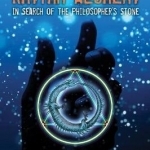
Rhythm Alchemy: In Search of the Philospher's Stone
Book
According to Socrates, humans have nothing more to learn because we already know everything we need...
Hadley (567 KP) rated Handbook of Paranormal Powers in Books
Jun 2, 2019
I have always believed in the paranormal, but I am careful not to take everything at face value. When I picked up this book, I unfortunately took it at its face value, thinking that it was about how people developed these paranormal abilities and the things that they achieved with them.
But this book seems to have been written by a skeptic that disguised it as a book from a believer in the paranormal, which to say is a pretty clever way to sell a book when the belief in the paranormal is at an all time high. The author spends much of the book detailing people who have exhibited paranormal abilities just to quickly tear them down. I will say that Brian Haughton did a wonderful job on researching for this book, bringing up not only the history of paranormal abilities, but also self proclaimed psychics that readers may not have even heard of, such as Florence Cook, who had her abilities tested by none other than William Crookes( the discoverer of the element thallium).
Haughton's 'Handbook of Paranormal Powers' should have been titled something else, mostly because it's a history lesson in ESP and also, obviously, from the point-of-view of a skeptic. Yet, it doesn't lack for reading by believers; one such part I found interesting was a part on dowsing- the supernatural ability to find hidden objects, substances, geographic features, or sometimes even people- which you may have seen someone doing by holding two rods to find underground water. This part was about when dowsing became popular in the seventeenth-century France, and was being considered 'evil': ". . .with the dowser Baroness de Beausoleil and her husband, a mining expert, journeying across Europe and allegedly locating ore deposits of iron, gold, and silver. The couple established a thriving mineral company, but when their methods of locating metal ores became known they were accused of practicing the 'black arts' and imprisoned for the rest of their lives. " Readers learn that it wasn't until the nineteenth century, with the rise of spiritualism, that dowsing was no longer considered 'evil.'
Another one that interested me concerned the comedian Andy Kaufman, and his pursuit to rid himself of a rare lung cancer with psychic healing: "In March 1984, US comedian Andy Kaufman traveled to the Philippines for a six- week course of psychic surgery after being diagnosed with a rare lung cancer. The surgeon, Jun Labo, performed the operation, and claimed that he had removed large cancerous tumors from Kaufman's body. On May 16, 1984, Kaufman died from renal failure as a consequence of a metastatic lung cancer. "
I hate, but also love this book, not because Haughton backs up all of the skeptic claims with scientific research and tests, but because he claimed this to be a handbook or paranormal powers. If you glance at the cover, just below the title is: 'discover the secrets of mind readers, mediums, and more' - this can be taken that it's written by someone who believes in the paranormal, as well as someone who may have had personal experiences with the unknown, but with that said, I did learn a lot about the history of paranormal powers as well as people I had never heard of.
To prove the skepticism in Haughton's writing, we can turn to page 173, where he writes about how to test whether or not a self-proclaimed psychic surgeon is real. But even before this page and throughout this book, Haughton explains someone doing an extraordinary thing only to quickly explain away why it was fake to begin with. The 'Handbook of Paranormal Powers' reads a lot like a college thesis, that I found myself getting bored with the matter-of-fact tone. Some readers may enjoy reading essay-type books, but for me, it becomes repetitive enough that I don't remember much of the information I had just read.
Also, readers may come away with the feeling that Haughton doesn't care about the slight chance that some paranormal powers may be real, but instead he'd rather read about the scientific facts. I would only recommend this book to people who want to do a light reading on paranormal history, meaning mostly what made headlines in the news. For believers, I would suggest you go elsewhere.
But this book seems to have been written by a skeptic that disguised it as a book from a believer in the paranormal, which to say is a pretty clever way to sell a book when the belief in the paranormal is at an all time high. The author spends much of the book detailing people who have exhibited paranormal abilities just to quickly tear them down. I will say that Brian Haughton did a wonderful job on researching for this book, bringing up not only the history of paranormal abilities, but also self proclaimed psychics that readers may not have even heard of, such as Florence Cook, who had her abilities tested by none other than William Crookes( the discoverer of the element thallium).
Haughton's 'Handbook of Paranormal Powers' should have been titled something else, mostly because it's a history lesson in ESP and also, obviously, from the point-of-view of a skeptic. Yet, it doesn't lack for reading by believers; one such part I found interesting was a part on dowsing- the supernatural ability to find hidden objects, substances, geographic features, or sometimes even people- which you may have seen someone doing by holding two rods to find underground water. This part was about when dowsing became popular in the seventeenth-century France, and was being considered 'evil': ". . .with the dowser Baroness de Beausoleil and her husband, a mining expert, journeying across Europe and allegedly locating ore deposits of iron, gold, and silver. The couple established a thriving mineral company, but when their methods of locating metal ores became known they were accused of practicing the 'black arts' and imprisoned for the rest of their lives. " Readers learn that it wasn't until the nineteenth century, with the rise of spiritualism, that dowsing was no longer considered 'evil.'
Another one that interested me concerned the comedian Andy Kaufman, and his pursuit to rid himself of a rare lung cancer with psychic healing: "In March 1984, US comedian Andy Kaufman traveled to the Philippines for a six- week course of psychic surgery after being diagnosed with a rare lung cancer. The surgeon, Jun Labo, performed the operation, and claimed that he had removed large cancerous tumors from Kaufman's body. On May 16, 1984, Kaufman died from renal failure as a consequence of a metastatic lung cancer. "
I hate, but also love this book, not because Haughton backs up all of the skeptic claims with scientific research and tests, but because he claimed this to be a handbook or paranormal powers. If you glance at the cover, just below the title is: 'discover the secrets of mind readers, mediums, and more' - this can be taken that it's written by someone who believes in the paranormal, as well as someone who may have had personal experiences with the unknown, but with that said, I did learn a lot about the history of paranormal powers as well as people I had never heard of.
To prove the skepticism in Haughton's writing, we can turn to page 173, where he writes about how to test whether or not a self-proclaimed psychic surgeon is real. But even before this page and throughout this book, Haughton explains someone doing an extraordinary thing only to quickly explain away why it was fake to begin with. The 'Handbook of Paranormal Powers' reads a lot like a college thesis, that I found myself getting bored with the matter-of-fact tone. Some readers may enjoy reading essay-type books, but for me, it becomes repetitive enough that I don't remember much of the information I had just read.
Also, readers may come away with the feeling that Haughton doesn't care about the slight chance that some paranormal powers may be real, but instead he'd rather read about the scientific facts. I would only recommend this book to people who want to do a light reading on paranormal history, meaning mostly what made headlines in the news. For believers, I would suggest you go elsewhere.
Sassy Brit (97 KP) rated You Should Have Left in Books
Jun 5, 2019
by author Daniel Kehlmann is imaginatively written in such a way that you’re reading a scriptwriter’s notes from his notebook, as he is writing them. The main character bares his soul about his life, his thoughts and dreams. Much of it is mundane everyday stuff, until you realise that what is being said actually has a very different meaning. Darker and more horrific than it at first may seem.
Writing his screenplay, and lying to his boss about his progress, the screenwriter takes his family, wife Susanna, and four-year old Esther to what he wants to be a writer’s retreat. Yeah, it does sound rather like The Shining. But even though there’s less of it, there’s even more to it… Stick with me. I’ll explain.
Things are not going as planned, for this unnamed writer. His marriage is on the rocks and his screenplay is failing. On top of that there are a lot of strange goings on he cannot explain. Odd things are happening in the house he’s renting via Airbnb. Maybe it’s haunted, or just tricks of light are playing with his mind giving him that illusion. Either way, it’s a slow descent into darkness that the author of the notebook does not seem to notice himself. Not straight away.
But as the reader I get to see that every now and then there’s things hidden in the text the writer seems not to be aware of. He’s spiralling downhill I’m wondering about his mental state, or if the house itself, or something in it — something supernatural — is playing with his mind.
How long can he hold it together? He’s got responsibilities to look after his kid, but he can hardly look after himself. He’s already forgetting which lies he’s told and mixing his dreams (and nightmares) with reality. Even he doesn’t know how it will end, and starts to think about leaving his notebook behind in order for it to be found… and it has been, I’m reading it now…
Several of the notes in his book get to the end of the page and are never finished, which to my mind, is in keeping with the distracted, confused voice of this note taker and adds to the setting’s dark, oppressive atmosphere.
Clever, surreal, with a kind of rhythmic writing, akin to memories of sitting in the back of the car and being rocked to sleep. The only difference would be the rude awakening. The slamming of the brakes. When the harshness of reality jolts you awake.
Yep, this unsettling, nightmarish journey, had me glued to the pages, even though at first I was not entirely sure I understood what I’d read… It’s a short novella sized book, and I must admit I had to read it again to fully appreciate this awesome piece of writing. It’s not your average horror, I can tell you! Nope, there’s nothing average about this at all. Incidentally, it’s translated from German and that fact may be why I thought it worked even better. No words are wasted. There’s a certain style to this book that makes me feel like he’s got something bigger, and maybe even better to come. I can see, however, it won’t be everyone’s cup of tea. I personally wish I’d got to this one sooner.
Stark, sparse, and totally different to anything I’ve read in a long time. I loved it. An alternative read without a doubt. A very short read, in fact. What’s more, this review took longer to write about it, than it did to read. Twice.
Writing his screenplay, and lying to his boss about his progress, the screenwriter takes his family, wife Susanna, and four-year old Esther to what he wants to be a writer’s retreat. Yeah, it does sound rather like The Shining. But even though there’s less of it, there’s even more to it… Stick with me. I’ll explain.
Things are not going as planned, for this unnamed writer. His marriage is on the rocks and his screenplay is failing. On top of that there are a lot of strange goings on he cannot explain. Odd things are happening in the house he’s renting via Airbnb. Maybe it’s haunted, or just tricks of light are playing with his mind giving him that illusion. Either way, it’s a slow descent into darkness that the author of the notebook does not seem to notice himself. Not straight away.
But as the reader I get to see that every now and then there’s things hidden in the text the writer seems not to be aware of. He’s spiralling downhill I’m wondering about his mental state, or if the house itself, or something in it — something supernatural — is playing with his mind.
How long can he hold it together? He’s got responsibilities to look after his kid, but he can hardly look after himself. He’s already forgetting which lies he’s told and mixing his dreams (and nightmares) with reality. Even he doesn’t know how it will end, and starts to think about leaving his notebook behind in order for it to be found… and it has been, I’m reading it now…
Several of the notes in his book get to the end of the page and are never finished, which to my mind, is in keeping with the distracted, confused voice of this note taker and adds to the setting’s dark, oppressive atmosphere.
Clever, surreal, with a kind of rhythmic writing, akin to memories of sitting in the back of the car and being rocked to sleep. The only difference would be the rude awakening. The slamming of the brakes. When the harshness of reality jolts you awake.
Yep, this unsettling, nightmarish journey, had me glued to the pages, even though at first I was not entirely sure I understood what I’d read… It’s a short novella sized book, and I must admit I had to read it again to fully appreciate this awesome piece of writing. It’s not your average horror, I can tell you! Nope, there’s nothing average about this at all. Incidentally, it’s translated from German and that fact may be why I thought it worked even better. No words are wasted. There’s a certain style to this book that makes me feel like he’s got something bigger, and maybe even better to come. I can see, however, it won’t be everyone’s cup of tea. I personally wish I’d got to this one sooner.
Stark, sparse, and totally different to anything I’ve read in a long time. I loved it. An alternative read without a doubt. A very short read, in fact. What’s more, this review took longer to write about it, than it did to read. Twice.

Europe offline map, guide, weather, hotels. Free navigation.
Travel and Navigation
App
100% Offline Map & Guide. Over 2 million hikers use our apps! off.GUIDE is a mobile app that helps...
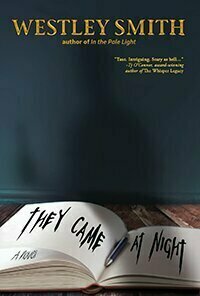
They Came At Night
Book
In the five years since the fateful and horrific night that changed her life, Sandra Leigh has kept...
Crime Mystery Thriller Suspense
Alice (12 KP) rated The Copper Promise (The Copper Cat, #1) in Books
Jul 3, 2018
The Copper Promise was one of those books that I stumbled upon on Friday a fortnight ago, I picked up the kindle sample – a grand total of 5 chapters – and sat there and devoured it. By Saturday evening I was in possession of a paperback and by Sunday I was over 100 pages in; I read between 50-80 pages per day and finished it on Thursday 17th November – a whole 5 days after purchase.
I’m a rare 5 star reviewer and a book has to tick every single tiny little box for me to even consider going past 4 stars. I’ve also never picked up a sample and ordered a book within 24 hours, I usually sit and think about it for a while but The Copper Promise was one of those books. I was about 70 pages in to The Copper Promise when I bought its sequels The Iron Ghost and The Silver Tide. This never happens – ever.
From the get go, Jen Williams’ characters and world building was on point. The story follows what will eventually become The Black Feather Three – Wydrin of Crosshaven, Sir Sebastian Carverson of Ynnsmouth and Lord Aaron Frith of The Blackwood:-
Wydrin of Crosshaven is a foul-mouthed, crass, violently aggressive and sarcastic pirate-cum-sell-sword and she’s AMAZING!
Sir Sebastian Carverson of Ynnsmouth is a disgraced Knight of Ynnsmouth, sword-sworn to the god-peak Isu turned sell-sword for hire with a heart of gold.
And last but certainly not least Lord Aaron Frith of Blackwood, last surviving heir of the The Blackwood, tortured soul (and I mean this in the literal sense) and one confused man with a neat newly acquired trick.
∞
Frith has hired Wydrin and Sebastian and a weird little fella called Gallo to take him to The Citadel as a means to exact revenge on the people who gravely injured him and murdered his family. Gallo goes on ahead as he’s impatient and things go a little belly-up for him; Frith, Wydrin and Sebastian go to the Citadel, go exploring in the creepy castle and see Gallo who they assumed was dead, the trio of adventurers unknowingly unleash a god in the form of a dragon which in turn unleashes several far-ranging ramifications – Frith absorbs a lot of magic and knowledge, Sebastian almost dies because of Gallo’s betrayal but pulls through because of a mystic connection he forges at death’s door and The Copper Cat goes about her business.
This Citadel invasion and ultimate unleashing of a long-believed dead god sets the story up nicely for its onward and upward momentum. Frith absorbs the power he was searching for in the lake hidden at the bottom of the Citadel and becomes a force to be reckoned with (eventually) but not only do they release a dragon they also release her brood army – neat green and golden dragon-hybrid things with a connection to both Y’Ruen (the dragon) and Sebastian – cue his nightmares.
The book as a debut was stunningly well written with characters that were neatly rounded off with few cliffhangers and a nicely written flow and mixture of present and past tense. The characters (particularly Wydrin) were superb and I couldn’t get enough of her utter crassness and her unrelenting torment of Frith – brilliantly written.
∞
I really liked the fact that Jen Williams also gave us chapters from the point of view of the brood army as they traverse Ede destroying any and everything. She shows us the stark contrast of them being a number (The Thirty-Third) and of them becoming a unique being (Ephemeral) with their own thoughts and feelings – some remained purely numbers but a large amount of them became individuals and “broke” from the brood.
There have been some mixed reviews on this book but my opinion is this book was amazing. An outstanding read of amusing proportions where plenty of banter, adventure, magic and mayhem abound. Although the ending closes off some individual story arcs it also opens the door to many more which continue in the next book – my overall feeling towards The Copper Promise was along the lines of “Please don’t leave me!” and “Oh dear god I need more. Right now.”
As mentioned above I bought the next two instalments and I’m 150 pages through the second one and it is just as good as the first one! I can’t wait to see where this story goes!
I’m a rare 5 star reviewer and a book has to tick every single tiny little box for me to even consider going past 4 stars. I’ve also never picked up a sample and ordered a book within 24 hours, I usually sit and think about it for a while but The Copper Promise was one of those books. I was about 70 pages in to The Copper Promise when I bought its sequels The Iron Ghost and The Silver Tide. This never happens – ever.
From the get go, Jen Williams’ characters and world building was on point. The story follows what will eventually become The Black Feather Three – Wydrin of Crosshaven, Sir Sebastian Carverson of Ynnsmouth and Lord Aaron Frith of The Blackwood:-
Wydrin of Crosshaven is a foul-mouthed, crass, violently aggressive and sarcastic pirate-cum-sell-sword and she’s AMAZING!
Sir Sebastian Carverson of Ynnsmouth is a disgraced Knight of Ynnsmouth, sword-sworn to the god-peak Isu turned sell-sword for hire with a heart of gold.
And last but certainly not least Lord Aaron Frith of Blackwood, last surviving heir of the The Blackwood, tortured soul (and I mean this in the literal sense) and one confused man with a neat newly acquired trick.
∞
Frith has hired Wydrin and Sebastian and a weird little fella called Gallo to take him to The Citadel as a means to exact revenge on the people who gravely injured him and murdered his family. Gallo goes on ahead as he’s impatient and things go a little belly-up for him; Frith, Wydrin and Sebastian go to the Citadel, go exploring in the creepy castle and see Gallo who they assumed was dead, the trio of adventurers unknowingly unleash a god in the form of a dragon which in turn unleashes several far-ranging ramifications – Frith absorbs a lot of magic and knowledge, Sebastian almost dies because of Gallo’s betrayal but pulls through because of a mystic connection he forges at death’s door and The Copper Cat goes about her business.
This Citadel invasion and ultimate unleashing of a long-believed dead god sets the story up nicely for its onward and upward momentum. Frith absorbs the power he was searching for in the lake hidden at the bottom of the Citadel and becomes a force to be reckoned with (eventually) but not only do they release a dragon they also release her brood army – neat green and golden dragon-hybrid things with a connection to both Y’Ruen (the dragon) and Sebastian – cue his nightmares.
The book as a debut was stunningly well written with characters that were neatly rounded off with few cliffhangers and a nicely written flow and mixture of present and past tense. The characters (particularly Wydrin) were superb and I couldn’t get enough of her utter crassness and her unrelenting torment of Frith – brilliantly written.
∞
I really liked the fact that Jen Williams also gave us chapters from the point of view of the brood army as they traverse Ede destroying any and everything. She shows us the stark contrast of them being a number (The Thirty-Third) and of them becoming a unique being (Ephemeral) with their own thoughts and feelings – some remained purely numbers but a large amount of them became individuals and “broke” from the brood.
There have been some mixed reviews on this book but my opinion is this book was amazing. An outstanding read of amusing proportions where plenty of banter, adventure, magic and mayhem abound. Although the ending closes off some individual story arcs it also opens the door to many more which continue in the next book – my overall feeling towards The Copper Promise was along the lines of “Please don’t leave me!” and “Oh dear god I need more. Right now.”
As mentioned above I bought the next two instalments and I’m 150 pages through the second one and it is just as good as the first one! I can’t wait to see where this story goes!
Night Reader Reviews (683 KP) rated The Devil's Workshop in Books
Jan 10, 2020
Honest Review for Free Copy of Book
The Devil’s Workshop by Donnally Miller is one of the few books that I felt like I had to read twice, and did. Even after that I still feel like I am missing quite a bit of what this book has to offer. If there were ever a book that deserves to be torn apart (and I mean that in the best possible sense) and be studied in depth to have all the hidden meanings exposed this is it. However, I am not the one to do it.
Tom and Katie love each other to the point that when Tom leaves to work on a ship for a while, Katie gives him an extremely special engraved pocket watch to take with him. Little does Tom know, he helped bury the Son of Light shortly before leaving and this has thrown the world into chaos. Katie loses her job at the mansion where she lives and finds herself traveling with a dog and a lovesick man whom she has no affection for on a journey to find Tom. Meanwhile, Tom has lost Katie’s pocket watch, was thrown overboard, and is trying to make his way back to her. Thanks to Deirdre, The Queen of the Witches, the journey these two lovers are on is excruciatingly long and dangerous.
The Indians who live peacefully in the Forest have started to band together in preparation for driving “the white man” back into the sea where they came from. Slaves have also started rebelling all along the Coast and are being hunted by a military who wants them destroyed. Making things even worse Pirates are causing the roads to be unsafe for travelers and Tom finds himself mixed up with them. All the while Deirdre is playing her games with each of the separate groups. The only way to set everything right once more is to create a new Child of Light.
I enjoyed how all the characters seem to cross paths at one point or another in ways that are more natural than forced by the author. All the trials that Tom and Katie are willing to endure in an attempt to see each other again restore a person’s faith in humanity and love. At the same time, the book forces the reader to question just what is love and why will we go to the ends of the Earth for it. What I did not like was that there were a few different times where I would lose track of who was talking or what was going on. I am not sure if this was in any way due to how the book was written or because I was not devoting the amount of attention to the book as it deserves. Even so philosophical books are expected to confuse readers at times and force them to re-evaluate passages, so it in no way changes my opinion of this book.
I would only recommend this book to adult readers. While there is nothing inappropriate for readers in high school, the philosophy would probably be a bit much for them. The casual reader should also be prepared for a long and at times difficult read. Nonetheless, I rate this book to be a perfect 4 out of 4. People who do not realize what kind of book this is would probably put it down during the first few chapters and give it a low rating for being hard to read. Those that realize what they are reading will find that the seemingly random ramblings do make sense if you slow down. There is a wonderful plotline and a beautiful love story (thankfully not a mushy one) that takes place throughout the book if readers are willing to take their time and look.
https://www.facebook.com/nightreaderreviews
Tom and Katie love each other to the point that when Tom leaves to work on a ship for a while, Katie gives him an extremely special engraved pocket watch to take with him. Little does Tom know, he helped bury the Son of Light shortly before leaving and this has thrown the world into chaos. Katie loses her job at the mansion where she lives and finds herself traveling with a dog and a lovesick man whom she has no affection for on a journey to find Tom. Meanwhile, Tom has lost Katie’s pocket watch, was thrown overboard, and is trying to make his way back to her. Thanks to Deirdre, The Queen of the Witches, the journey these two lovers are on is excruciatingly long and dangerous.
The Indians who live peacefully in the Forest have started to band together in preparation for driving “the white man” back into the sea where they came from. Slaves have also started rebelling all along the Coast and are being hunted by a military who wants them destroyed. Making things even worse Pirates are causing the roads to be unsafe for travelers and Tom finds himself mixed up with them. All the while Deirdre is playing her games with each of the separate groups. The only way to set everything right once more is to create a new Child of Light.
I enjoyed how all the characters seem to cross paths at one point or another in ways that are more natural than forced by the author. All the trials that Tom and Katie are willing to endure in an attempt to see each other again restore a person’s faith in humanity and love. At the same time, the book forces the reader to question just what is love and why will we go to the ends of the Earth for it. What I did not like was that there were a few different times where I would lose track of who was talking or what was going on. I am not sure if this was in any way due to how the book was written or because I was not devoting the amount of attention to the book as it deserves. Even so philosophical books are expected to confuse readers at times and force them to re-evaluate passages, so it in no way changes my opinion of this book.
I would only recommend this book to adult readers. While there is nothing inappropriate for readers in high school, the philosophy would probably be a bit much for them. The casual reader should also be prepared for a long and at times difficult read. Nonetheless, I rate this book to be a perfect 4 out of 4. People who do not realize what kind of book this is would probably put it down during the first few chapters and give it a low rating for being hard to read. Those that realize what they are reading will find that the seemingly random ramblings do make sense if you slow down. There is a wonderful plotline and a beautiful love story (thankfully not a mushy one) that takes place throughout the book if readers are willing to take their time and look.
https://www.facebook.com/nightreaderreviews
Hadley (567 KP) rated Heart-Shaped Box in Books
Jun 18, 2019
Unlikable characters (1 more)
Parts that weren't needed
Which one of us hasn't imagined being a successful rock star? The main character of this novel is an aging one, who has become the stereo-typical hard-ass that is expected of a death metal rock star. We begin with Judas Coyne, who hasn't made an album in years, and who is constantly running from his past- - -a habit he acquired when he ran away from home in Louisiana at the age of 19, and this is the problem that permeates Hill's 'Heart-Shaped Box.'
'Heart-Shaped Box' does a successful job of not only painting a picture of ghosts, but also of the spirits that reside in animals (like a witch's familiar), but the likable characters in this book are few and far between. Coyne treats women as objects(he literally only calls them by the State name they are from,such as Florida), and also ended his own marriage by refusing to throw away a snuff film he had obtained from a police. When the story begins, Coyne is shacked up with a young woman (nearly 30 years younger) he calls Georgia; she is described as a stereo-typical goth: black hair, black nail polish, pale white skin. This description of the women Coyne has been with seem to be about the same, but maybe a different hair color, but any other woman that is ever mentioned in the book is either very old or very overweight.
Coyne, a collector of all things dark, buys a dead man's suit that is supposedly haunted by a woman's deceased stepfather. Quite quickly things begin to happen after the suit arrives, including a decaying smell, first noticed by Coyne's 'girlfriend,' Georgia: " I know. I was wondering if there was something in one of the pockets. Something going bad. Old food." She makes Coyne take a look at the suit to see if there is something dead inside of it, but he never finds the source of the smell. Instead, he finds a picture of a young girl in one of the pockets, a girl that is very familiar to Coyne, a girl he once called 'Florida.'
Coyne doesn't seem to take any of the signs seriously that he may be haunted by a ghost that wants to harm him and anyone who comes in contact with him. Until Coyne finds himself sitting inside his restored vintage Mustang in a closed-off barn: " He snorted softly to himself. It wasn't selling souls that got you into trouble, it was buying them. Next time he would have to make sure there was a return policy. He laughed, opened his eyes a little. The dead man, Craddock, sat in the passenger seat next to him. He smiled at Jude, to show stained teeth and a black tongue. He smelled of death, also of car exhaust. His eyes were hidden behind those odd, continuously moving black brushstrokes."
Craddock turns out to be, without giving too much away, a man who was a spiritualist in his living life. He wants nothing but pain and misery for Coyne, who happened to kick his young step daughter to the curb a year before. The parts of the story that deal with both Coyne and Craddock interacting are the most interesting ones. Without these interactions, the story would have fallen very short.
That said, 'Heart-Shaped Box' had quite a few faults to it. Readers may notice that some pages contradict themselves on the very next page, Hill's overuse of Georgia's bangs (hair) as a description for all of her facial expressions, also Hill's habit of being repetitive with words that he uses to describe most things, the unbelievable part where Coyne- - - a collector of occult items- - - claims he has never used a Ouija board before (and lacks the knowledge of how to use one), and last but not least, chapter 34, a chapter that was not needed and completely stopped the story in it's tracks.
And speaking of things that were not needed in the story- - - a part where Georgia has a gun in her mouth, ready to commit suicide, Coyne can only think to remove the gun and replace it with his penis. I understand that Hill may have been going for unlikable characters from the beginning, to really have Coyne play the part of a jaded man, but sometimes Hill seems to go too far. Every book has to have a character to root for, otherwise your readers will put the book down, luckily, this book has Bammy; she is Georgia's grandmother, unfortunately, in less than 15 pages, she never appears in the story again. "You strung out? Christ. You smell like a dog." Bammy says to Georgia after she and Coyne show up at her home.
Is this book a good ghost story, yes, is this story a great horror story, no. Hill lacks on likable characters enough that I don't think a lot of people could enjoy this book. If I were to recommend it, I wouldn't recommend it to teenagers because of a much talked about snuff film, drugs and suicide. I don't think I would read this again.
'Heart-Shaped Box' does a successful job of not only painting a picture of ghosts, but also of the spirits that reside in animals (like a witch's familiar), but the likable characters in this book are few and far between. Coyne treats women as objects(he literally only calls them by the State name they are from,such as Florida), and also ended his own marriage by refusing to throw away a snuff film he had obtained from a police. When the story begins, Coyne is shacked up with a young woman (nearly 30 years younger) he calls Georgia; she is described as a stereo-typical goth: black hair, black nail polish, pale white skin. This description of the women Coyne has been with seem to be about the same, but maybe a different hair color, but any other woman that is ever mentioned in the book is either very old or very overweight.
Coyne, a collector of all things dark, buys a dead man's suit that is supposedly haunted by a woman's deceased stepfather. Quite quickly things begin to happen after the suit arrives, including a decaying smell, first noticed by Coyne's 'girlfriend,' Georgia: " I know. I was wondering if there was something in one of the pockets. Something going bad. Old food." She makes Coyne take a look at the suit to see if there is something dead inside of it, but he never finds the source of the smell. Instead, he finds a picture of a young girl in one of the pockets, a girl that is very familiar to Coyne, a girl he once called 'Florida.'
Coyne doesn't seem to take any of the signs seriously that he may be haunted by a ghost that wants to harm him and anyone who comes in contact with him. Until Coyne finds himself sitting inside his restored vintage Mustang in a closed-off barn: " He snorted softly to himself. It wasn't selling souls that got you into trouble, it was buying them. Next time he would have to make sure there was a return policy. He laughed, opened his eyes a little. The dead man, Craddock, sat in the passenger seat next to him. He smiled at Jude, to show stained teeth and a black tongue. He smelled of death, also of car exhaust. His eyes were hidden behind those odd, continuously moving black brushstrokes."
Craddock turns out to be, without giving too much away, a man who was a spiritualist in his living life. He wants nothing but pain and misery for Coyne, who happened to kick his young step daughter to the curb a year before. The parts of the story that deal with both Coyne and Craddock interacting are the most interesting ones. Without these interactions, the story would have fallen very short.
That said, 'Heart-Shaped Box' had quite a few faults to it. Readers may notice that some pages contradict themselves on the very next page, Hill's overuse of Georgia's bangs (hair) as a description for all of her facial expressions, also Hill's habit of being repetitive with words that he uses to describe most things, the unbelievable part where Coyne- - - a collector of occult items- - - claims he has never used a Ouija board before (and lacks the knowledge of how to use one), and last but not least, chapter 34, a chapter that was not needed and completely stopped the story in it's tracks.
And speaking of things that were not needed in the story- - - a part where Georgia has a gun in her mouth, ready to commit suicide, Coyne can only think to remove the gun and replace it with his penis. I understand that Hill may have been going for unlikable characters from the beginning, to really have Coyne play the part of a jaded man, but sometimes Hill seems to go too far. Every book has to have a character to root for, otherwise your readers will put the book down, luckily, this book has Bammy; she is Georgia's grandmother, unfortunately, in less than 15 pages, she never appears in the story again. "You strung out? Christ. You smell like a dog." Bammy says to Georgia after she and Coyne show up at her home.
Is this book a good ghost story, yes, is this story a great horror story, no. Hill lacks on likable characters enough that I don't think a lot of people could enjoy this book. If I were to recommend it, I wouldn't recommend it to teenagers because of a much talked about snuff film, drugs and suicide. I don't think I would read this again.
